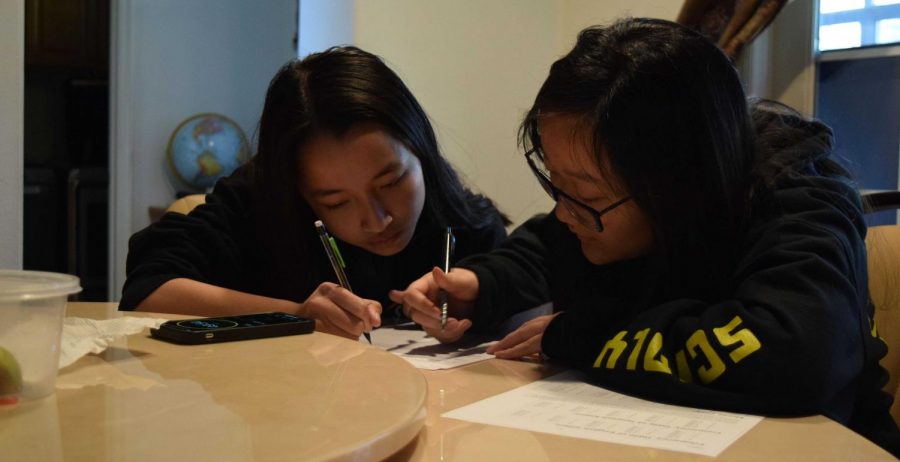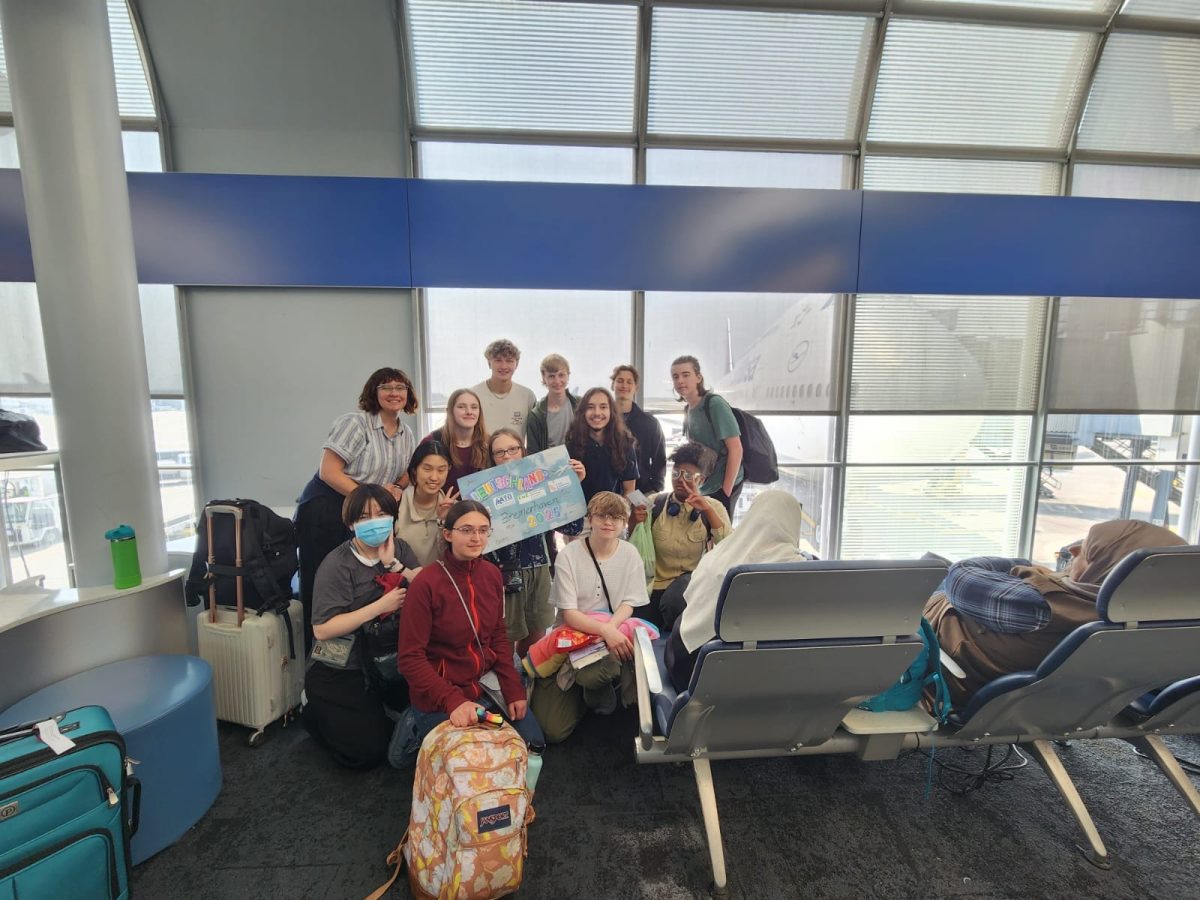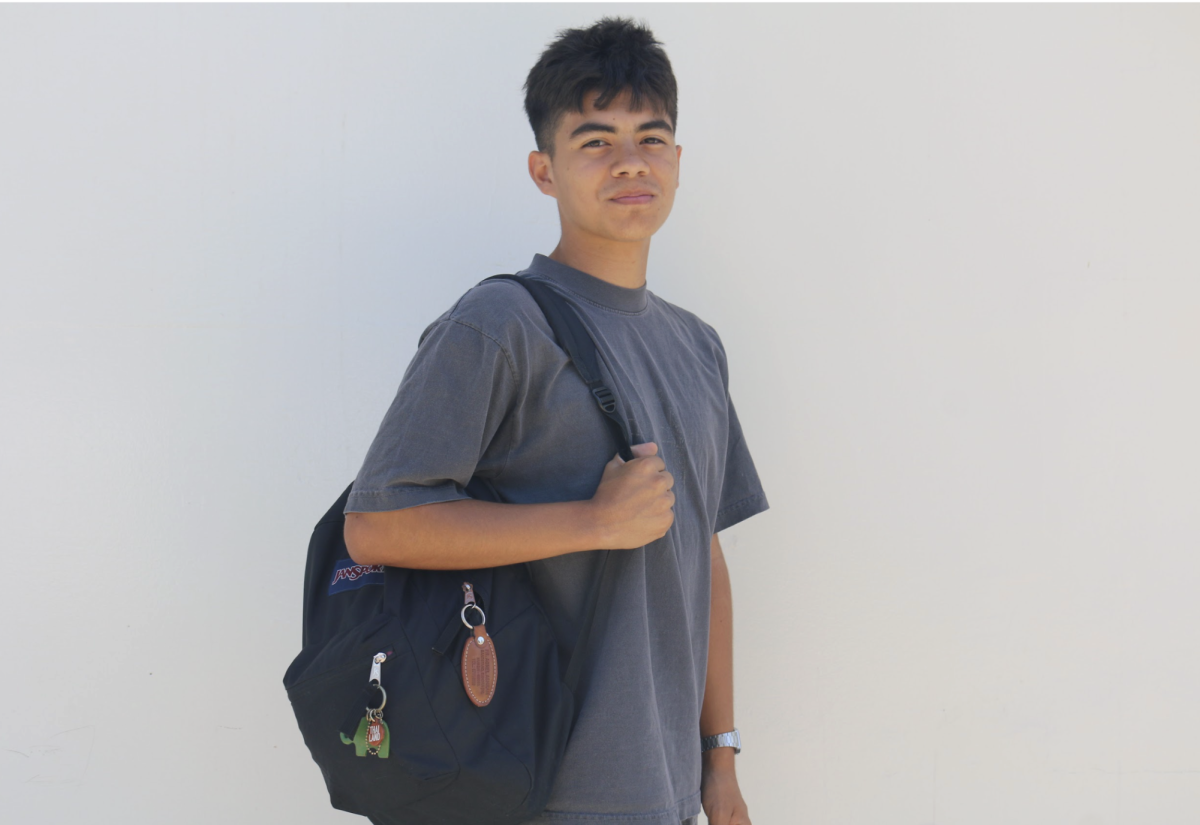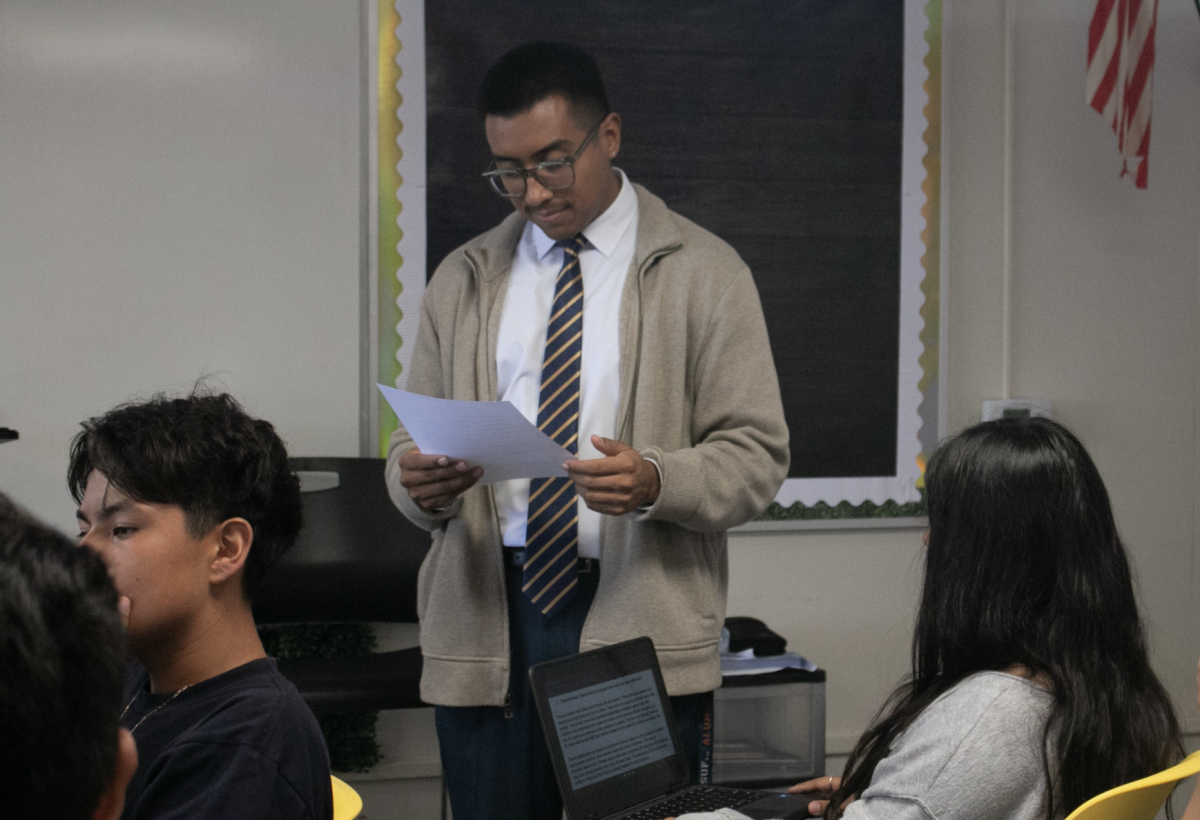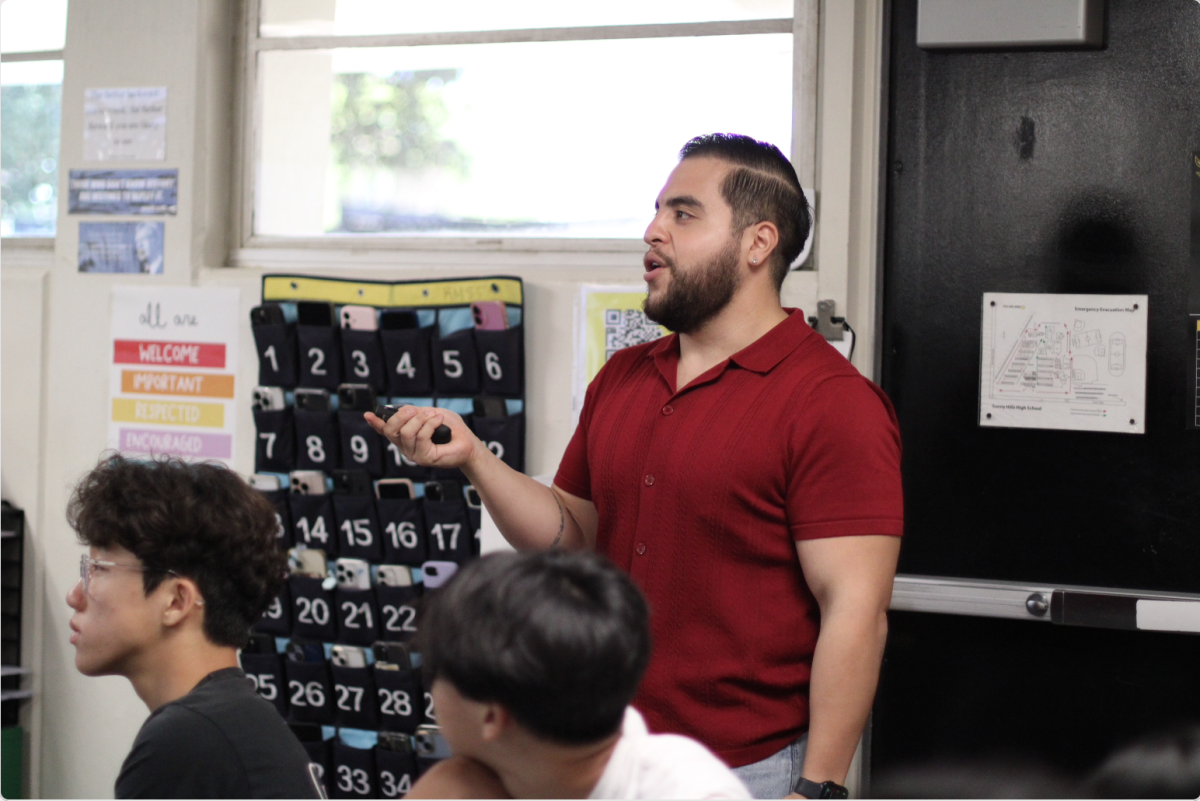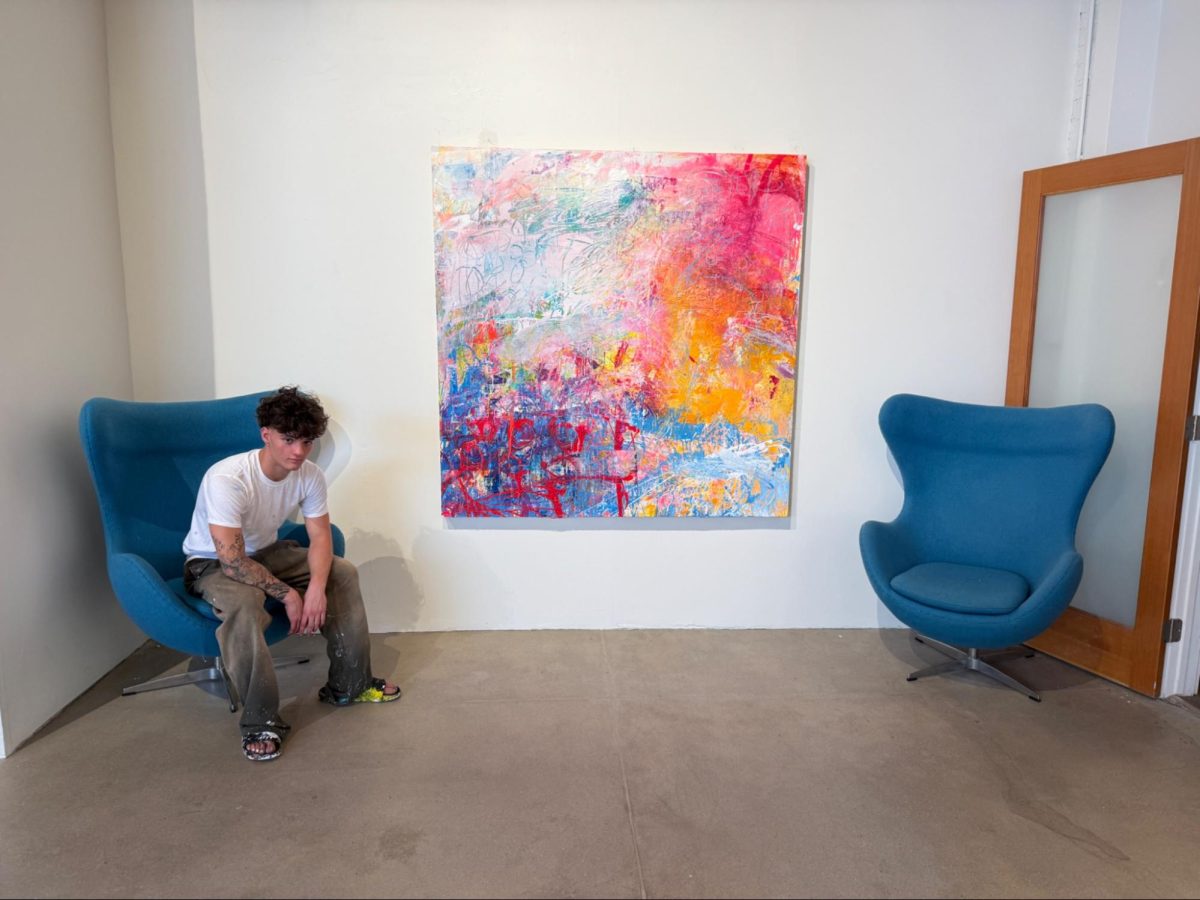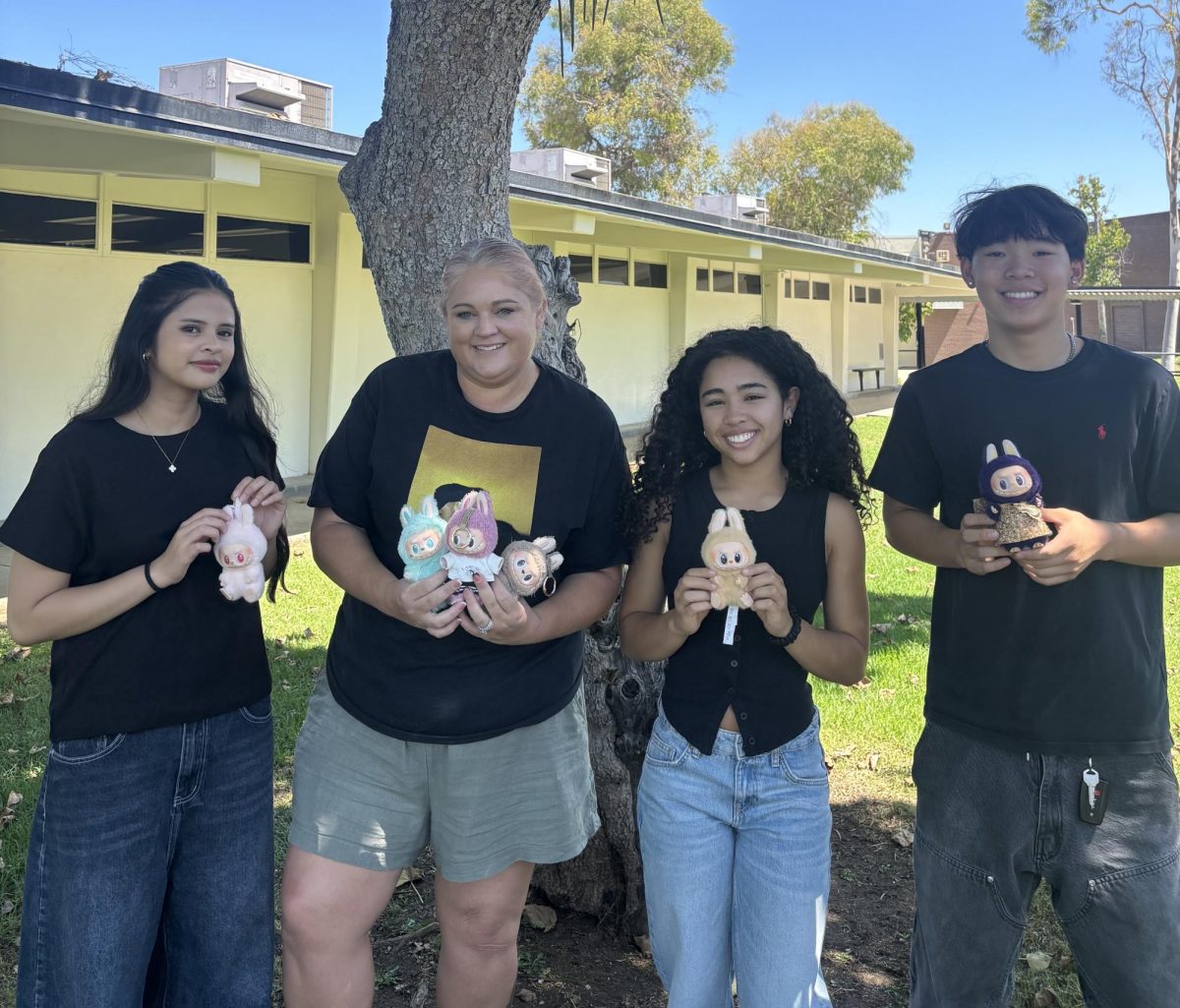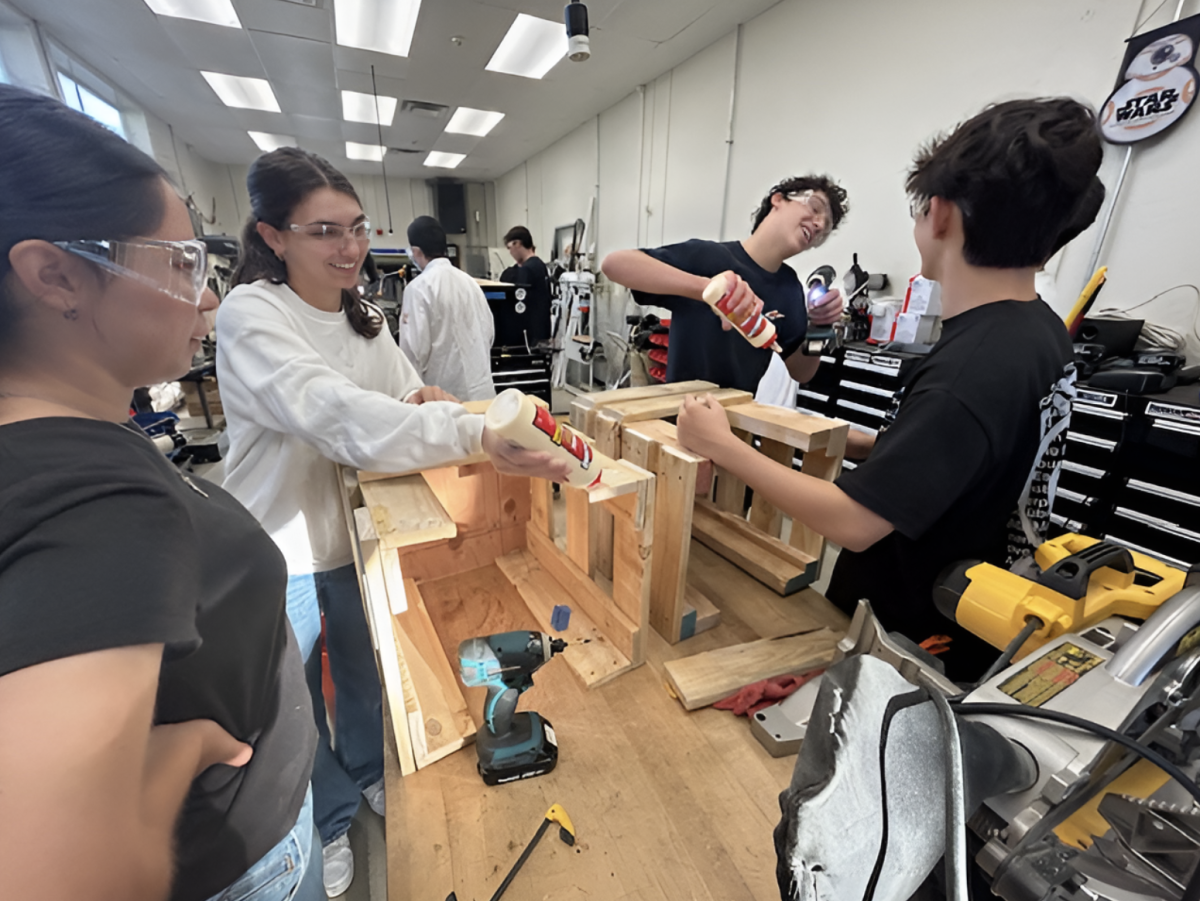It was sophomores Magdalene Kho and Lynette Ochoa’s first virtual competition for the Science Olympiad club.
“I was very nervous about it because I put a lot of pressure on myself for this event in particular and because of potential tech issues,” said Kho, SciOly’s co-vice captain. “These nerves all slowly faded though as I took my test. Until the last 5 minutes that is.”
While working on her anatomy and physiology assignment from home on her Apple computer, Kho said she was logged into the BEARSO Invitational website when she started experiencing server issues.
“My screen had timed out and that’s when all the problems started arising,” she said. “The proctor couldn’t see any of our messages as I tried to ask if our test got submitted successfully.
“Me being me, I started to panic because anatomy was my best chance at medalling in this huge competition.” Despite refreshing her screen repeatedly, it didn’t confirm that her answers were submitted, and she said she had to move on to the next event. “Later on, I found out that only the last 15 minutes were compromised, which sadly meant that basically all of my short answers went unsaved,” Kho said.
After the Oct. 10 competition ended, she and her partner learned that they ironically placed ninth out of more than 100 teams.
“I was still a little disappointed with what happened,” Kho said.
The sophomore is not alone in her feelings toward participating in a virtual event during the coronavirus pandemic, which has forced the closure of all live, large group competitions. Several other remote contests have also left Sunny Hills students feeling lonely and frustrated at internet connection issues.
Though his Orange County Academic Decathlon [OCAD] team placed 16th out of 23 teams at a Nov. 21 event, OCAD club president senior Chirstian Rivas missed the team bonding he experienced when the contest was held live.
On the day of the competition like with Kho’s SciOly event, students logged onto the Academic Decathlon website at around 8:30 a.m. and took tests until approximately 1:40 p.m.
“[Last year,] the team really came together during competitions because it was a nice break to talk to your friends after the stress of constant testing, speeches, essays and interviews,” Rivas said. “Now, camaraderie is missing among the team because of how impersonal practicing and studying online can be compared to in-person.”
Members of the Cyber Patriots club entered their first virtual event as part of the Cyber Patriot’s National Youth Cyber Defense Competition on Nov. 14.
Sophomore Remy Garcia-Kakebeen, the group’s president, said those participating from their homes also experienced similar obstacles as when students were in distance learning.
“[Contestants] seemed much more tired and much more fatigued near the end of the competition,” Garcia-Kakebeen said.
This story originally appeared in the Dec. 14 print issue, which can be read here.


